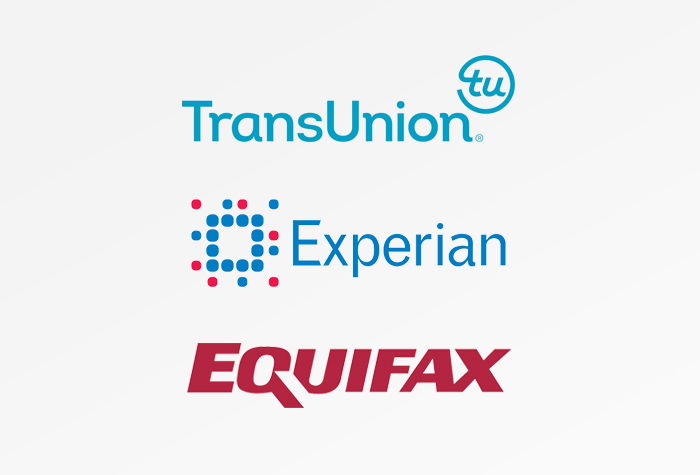Ever wonder why your credit score isn’t the same everywhere you check? The answer lies in how your credit data is collected. There are three major credit bureaus—Equifax, Experian, and TransUnion—and each one operates independently. They collect information at different times, from different sources, and often report different results.

Knowing how these credit bureaus work—and why your credit scores vary—can help you avoid surprises, catch errors, and make better financial decisions.
What Credit Bureaus Do and Why They Matter
Credit bureaus are private companies that collect and sell data about your borrowing behavior. They don’t issue credit or make lending decisions. Their main job is to compile credit reports based on the information they receive from creditors, lenders, and public records.
Lenders use these credit reports to evaluate your financial history. If your report shows you pay bills on time and manage debt well, you’re more likely to qualify for loans with lower interest rates. If your report shows missed payments or high credit usage, lenders may see you as a higher risk.
Credit bureaus play a major role in whether you get approved for credit, what your terms look like, and how much you pay in interest.
How Credit Reports Are Created and Updated
Each credit bureau builds your credit report using data sent by lenders, credit card issuers, debt collectors, and other financial organizations. They also pull public records, like bankruptcies or tax liens.
But here’s where things get tricky: data reporting is completely voluntary. No lender is required to report to all three credit bureaus. Some report to just one. Others report at different times.
For example, your credit card balance might show up on your TransUnion credit report mid-month but not hit your Equifax report until the end of the month. If a creditor doesn’t report to Experian at all, that account won’t show up there.
This timing and coverage gap is a big reason your credit reports—and your credit scores—don’t always match.
Who Reports to Credit Bureaus (and What They Report)
Most of the data on your credit report comes from companies you do business with. These include:
- Banks and credit unions – Report credit cards, auto loans, personal loans, and payment history.
- Credit card companies – Share account balances, credit limits, payment dates, and delinquencies.
- Auto and mortgage lenders – Submit details about your monthly payments, late payments, and defaults.
- Debt collectors – Report accounts that have been turned over for collection.
- Landlords and rental platforms – Some report rental payments, but not all do.
- Utility and phone providers – May report unpaid bills or late payments in some cases.
- Public agencies – Provide bankruptcy filings, tax liens, and civil judgments.
Because each of these sources chooses what—and where—to report, your three credit reports can look very different.
Key Differences Between Equifax, Experian, and TransUnion
Equifax, Experian, and TransUnion all gather similar types of credit data, but they don’t operate the same way. Their systems, update schedules, and data partnerships differ. This can lead to inconsistent credit reports and credit scores.
Here’s how they compare:
| Feature | Equifax | Experian | TransUnion |
|---|---|---|---|
| Year founded | 1899 | 1996 (U.S. presence) | 1968 |
| Employment history | Basic employer info | Basic employer info | Detailed job history |
| Common industry use | Mortgage lending | Credit cards | Auto lending |
| Credit monitoring services | Equifax Complete™ | Experian CreditWorks™ | TransUnion Monitoring |
| Frequency of updates | Varies by lender | Varies by lender | Varies by lender |
These differences explain why one credit bureau might show a higher credit score than another, or why an account might appear on one report but not the others.
Why Your Credit Score Can Be Different at Each Credit Bureau
It’s completely normal for your credit score to vary across Equifax, Experian, and TransUnion. This happens for a few key reasons.
1. Not all lenders report to every credit bureau. Some only send data to one or two. That means an account could appear on one credit report and be missing from the others.
2. Creditors report at different times. If your lender updates TransUnion at the beginning of the month but reports to Experian two weeks later, your account balances will look different.
3. Different scoring models. Most lenders use a FICO score, but some credit monitoring tools use VantageScore. These models weigh your credit behavior differently. Even the same model, like FICO, has multiple versions—lenders choose which one to use.
4. Each credit bureau has its own scoring formula. Even when using the same model, Equifax might factor in mortgage history differently than TransUnion, while Experian might put more weight on recent credit activity.
Because of these variables, it’s important to check all three credit reports—not just one.
How Lenders Use Credit Reports to Make Decisions
When you apply for credit, lenders pull one or more of your credit reports to assess risk. What they look at—and how they use it—depends on the type of loan.
- For mortgages: Lenders almost always check all three credit reports. They look at your FICO score from each bureau and use the middle score to make decisions. If you’re applying with someone else, they use the lower of the two middle scores.
- For auto loans: Lenders often check just one report—usually from TransUnion or Experian. That single score may determine your loan approval and interest rate.
- For credit cards: Issuers typically pull from one bureau. Which one depends on the bank. If you know a specific report is stronger, you may want to apply with a lender that uses that bureau.
No matter the product, lenders focus on payment history, credit utilization, account types, and recent inquiries. A clean report with low balances and on-time payments is the best way to qualify for better rates.
How to Monitor Your Credit Reports and Scores
You don’t have to pay to stay informed. You can check your credit reports for free, and there are tools that alert you to changes in your credit activity.
- AnnualCreditReport.com: This is the only government-approved site that lets you access your credit reports from Equifax, Experian, and TransUnion. Reports are currently available for free once a week.
- Paid reports and scores: If you want your current FICO scores or need frequent updates, each bureau sells premium credit monitoring packages.
- Credit monitoring services: These tools send alerts when something changes on your credit report, such as a new inquiry or account. Some offer identity theft protection, credit score tracking, and more.
Popular options include:
- MyFICO – Shows multiple versions of your FICO score.
- Experian CreditWorks™ – Offers FICO scores and real-time alerts.
- Identity Guard – Focuses on fraud protection with credit monitoring.
If you’re actively working on your credit or planning to apply for a loan, regular monitoring can help you catch problems early.
How to Protect Your Credit From Fraud and Identity Theft
Credit fraud can cause serious damage to your credit report. The good news is that you can lock down your credit file and act fast if something doesn’t look right.
- Credit freeze: A credit freeze blocks access to your credit report. Lenders won’t be able to open new accounts in your name unless you unfreeze it. You’ll need to freeze your report separately with Equifax, Experian, and TransUnion.
- Fraud alert: A fraud alert tells lenders to verify your identity before issuing credit. It’s less restrictive than a freeze, but still adds a layer of protection.
If you suspect fraud:
- Freeze your credit reports immediately at all three bureaus.
- File disputes for any accounts you didn’t open.
- Report the identity theft at IdentityTheft.gov and follow the recovery plan.
- Monitor your bank and credit card accounts for suspicious charges.
Taking action quickly can help you limit the damage and restore your credit.
Ready to Fix Your Credit? Start Here.
Answer a few simple questions and get a free step-by-step plan to rebuild your credit.

When It’s Worth Paying for Credit Reports or FICO Scores
You don’t always need to pay to access your credit data—but in some cases, it can be a smart move.
Paying makes sense when:
- You’re applying for a mortgage or major loan and want to see the same reports and scores lenders will use.
- You need to dispute something fast. If you purchase your credit report directly from a bureau, they must resolve the dispute within 30 days. If it’s from AnnualCreditReport.com, they have up to 45 days.
- You need your actual FICO scores. Many free services show VantageScore, but lenders typically use FICO. If you want the most accurate view of where you stand, FICO is the better choice.
Free reports are enough when:
- You’re checking for accuracy or watching for fraud.
- You’re not in a rush and just want to keep an eye on things.
If you’re preparing for a major financial decision, a paid report may be worth it. Otherwise, the free tools are usually all you need.
See also: Credit Cards That Give Free FICO Scores
Final Thoughts
Credit scores don’t always match because each credit bureau handles information differently. They collect data from different sources, update reports at different times, and may not receive the same details from every lender.
To stay on top of your credit, review all three reports often. Watch for errors, outdated accounts, or signs of fraud. If you plan to apply for a loan or credit card, start tracking your scores early so you have time to fix any issues.
Knowing how credit reports work—and how lenders use them—can help you make smarter decisions and improve your chances of getting approved with better rates.




